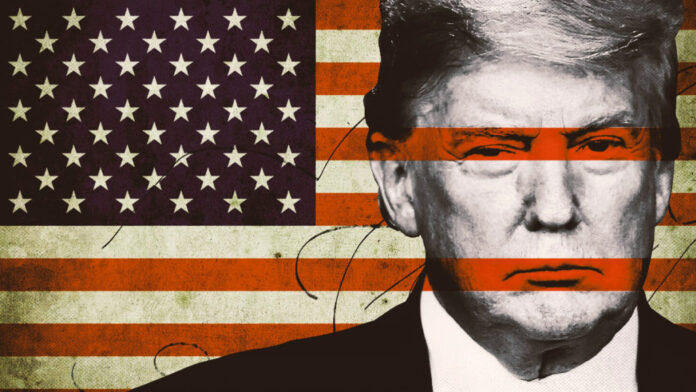Author: Richard Haass
Affiliation: The Council on Foreign Relations
Organization/Publisher: Foreign Affairs
Date/Place: September-October 2020/USA
Type of Literature: Journal Article
Word Count: 4270
Link: https://www.foreignaffairs.com/articles/united-states/2020-08-11/present-disruption
Keywords: The U.S. Foreign Policy, Donald Trump, Disruption, and Destruction
Brief:
In this article, Richard Haass evaluates the state of US foreign policy in the Trump era, considering that Trump has plunged the country into an unprecedented state of disruption, which is neither justified nor wise. The Trump administration’s aim was not to create anything like its predecessors, on the contrary, Trump tore up everything that was built for 75 years. This article also carries a warning against Trump’s re-election for a second term. If that happened, the term “destruction” would become more appropriate to describe this period of US foreign policy. The author presents a comprehensive critique of Trump’s worldwide vision, describing it as distorted, narrow-minded, and incapable of understanding the main goals of US foreign policy nor how the world moves. On the day of his inauguration, Trump presented a bleak description of the US record when it gave priority to abroad over the home, summarizing this in his famous slogan “America first and only.” After three and a half years, he has not changed anything in his vision (as evident from his speeches and tweets). For him, foreign policy is an expensive means of distraction, and in his view the costs of US leadership to the world have greatly exceeded the expected benefits. The author also reviews Trump’s perception of trade and relations with China, which proves his limited understanding of the way international trade operates. Commenting on this, the author presents several examples that demonstrate the limit of Trump’s worldview that ignored many facts, as the world has known during the past decades some great achievements that would not have been possible without the US leadership, most notably: The absence of a war between the great powers, a peaceful end to the Cold War on favorable terms to the United States, democracy expanded to most parts of the world, a 90-fold growth in the size of the American economy, etc. Additionally, Haass puts us in the context of the emergence of “Trumpism,” after the fall of the Soviet Union, the United States found itself alone without a rival, possessing unmatched power and not knowing what to do with it exactly. So, it has adopted a piecemeal approach to the world that over time has led to overextension and exhaustion. At the same time, internal problems (unemployment, declining wages, etc), especially after the global financial crisis of 2008, reinforced internal frustration at the overextension abroad, which was perceived as separate from the vital interests of the country and the well-being of its citizens. This in turn strengthened populist and nationalist tendencies that ultimately brought Trump to power. In another part of the article, the author sees that Trump’s approach is separate from all the traditional schools that prevailed or influenced previous presidents, such as realism, idealism, and humanism, describing Trump’s approach as a combination of Jacksonianism (the nationalist unilateralism of President Andrew Jackson in the 19 century), Isolationism that prevailed before World War II, and economic Protectionism as well. The author stresses that what distinguishes Trump most is his focus on economic interests and his narrow understanding of them, and his scant interest in human rights, the advancement of democracy, and facing global challenges such as immigration, climate change, etc. Moreover, the author describes Trump as having an open appetite for causing disruption in the country’s foreign policy and the world, providing numerous examples of this such as: his decision to withdraw the US forces from northern Syria, Afghanistan, Iraq and abandoning the allies to their fate; his threats to America’s vital allies in Europe and Asia, in exchange for his soft dealings with dictators and opponents such as North Korea and Russia; his slowdown in dealing with China’s moves in the South China Sea; his unilateral withdrawal from Vital international agreements and organizations and his threat to stop funding for others; and his threat to peace prospects in the Middle East and jeopardizing Israel’s future as a democratic and Jewish state, after his absolute bias to the Israeli side and eliminating any role for an honest American mediation. Trump’s approach has made the country less attractive, capable, and reliable to allies, so it is impossible for Washington to “regain the throne after abdicating.” Nevertheless, Haass believes that there is an opportunity to bring about a partial restoration of US foreign policy if Trump is defeated in the upcoming elections, then his era will appear to be a mere deviation from the course that prevailed. But, if he is re-elected, then those “present at the Disruption could become present at the Destruction,” the world will become more Hobbesian, and the world order that existed for 75 years will surely come to an end. The only question is what, if anything, would take its place.
By: Djallel Khechib, CIGA Senior Research Associate




